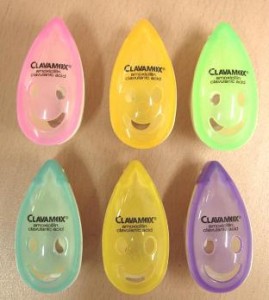So what’s the buzz about antibacterial toothbrush holders now? Aren’t they just plain ol’ boxes fashioned to the shape of your toothbrush with some sort of miraculous medication inside that somehow wards of the germs? Are they absolutely necessary? Are they just marketing gimmicks? Why are they so multicolored?
What exactly is an antibacterial toothbrush holder?
Well, if you take an ordinary toothbrush holder and combine it with an antibacterial agent you get an antibacterial toothbrush holder. Sounds simple doesn’t it? But that’s basically is what it is. It’s enclosure of the toothbrush head prevents the head and bristles from coming into contact with surfaces. Some even include a nifty suction cup allowing you to stick it on any flat surface, like the bathroom wall tiles for simple storage. Not forgetting the all important FDA-approved antibacterial agent which is used to kill off germs on your toothbrush. Not forgetting it as a toothbrush holder, it helps in increasing the portability of a toothbrush as well, making it ideal for travel purposes.
So is owning one necessary?
That really depends how you would see this scenario. Picture this. Your mouth is the home of millions if not billions of bacteria. You brush your teeth with a toothbrush and rinse your mouth with mouthwash and you feel fresher because the bacterial load has decreased.
But where did all those bacteria go? Well, the bulk of it got swished out in the mouthwash and are on a one way trip down the sink. As you place your toothbrush back to wherever you took it from you would have failed to realize that some of it would also have adhered to or in between the bristles of your toothbrush. Gasp!
Many bacteria, viruses and fungi actually adhere to toothbrushes, and may be put back into your mouth again as you brush !
Here are some common microorganisms:
- Streptococcus Mutans – one of the main microorganisms causing dental caries.
- Beta-hemolytic Streptococcus – the main bacterium causing pharyngotonsillitis.
- Candida Albicans – the main fungus causing thrush.
- Coliform bacteria – commonly found in aerosolized droplets in the bathroom.
- Herpes Simplex Virus – viruses that cause cold sores.
Now how exactly did you feel about that whole scenario? Were you indifferent or were you concerned?
If you showed any amount of concern, you just may be the one who needs the Antibacterial Toothbrush Holder!
So how exactly does it work?
Contained within the holder are antimicrobial agents. As seen in from certain images from manufacturers, an example of one would be Amoxicillin + Clavulanic Acid ( pharmaceutical buffs would know this by its tradename Augmentin by GlaxoSmithKline plc. ) which inhibits the bacterial cell wall, killing it.
I want to buy one !
Now everyone gets excited when we get to buy new stuff. Fortunately choosing an antibacterial toothbrush holder is a fool-proof as rolling a ball down a hill.
Firstly choose your favorite color and that’s all to it. Truly nothing can be more simple that that. There are various manufacturers of antibacterial toothbrush holders and almost all of them are non-dental companies. What’s important is that they have an approval seal from any regulating body to guarantee the product. These things are really cheap, so be careful not to be ripped off by the ones costing more than 5 dollars a piece.
To make things really simple, just ask your family dentist. They are bound to know good ones and may even be selling some themselves.
Conclusion
There is no definite must in purchasing an antimicrobial toothbrush holder. It’s a purely personal preference thing which to some extent may border on the brink of compulsion for hygiene. Using one however, would indeed guarantee a cleaner germ free toothbrush before the next time you decide to use it again to brush your teeth.

Just for the record, antibacterial things ONLY kill bacteria. In other words, it does nothing to get rid of viruses and fungi. Both agents listed are only antibacterial, so keep in mind that it WILL NOT kill herpes simplex or any other viruses. It also will not kill fungi. Just thought people should know before buying into false adverts.